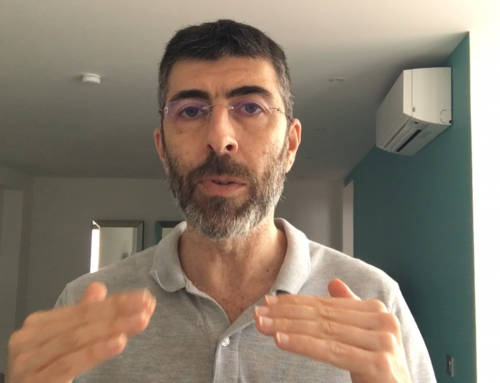The power of human thought is a wonderful thing
It given us science and literature, but it also has the power to create new realities. Specifically, every social reality, is a creation of the human mind, in particular of the human thought. All this exists because we think about their existence.
But the human thought also has the power to create negative things, for example, in history, it has given us superstition, slavery and war. This underscores even more how disconcerting the power of the human thought is. The mind that millennium after millennium has been in the grip of irrational superstitions is the same mind, with the same powers of thought, which has produced science, philosophy and art.
Understanding the kind of thoughts
If we intend to understand the power of the thought, we must first understand the different types of thought and how each of them works. For example, there is a bottle of water in the refrigerator; this is a thought, but it is only one type of thought. Then suppose you want a glass of fresh water; this too is a thought, but of a different type: a desire. Beliefs represent how things are in the world, but they are the types of things that can be true or false. It is hoped that our beliefs are more true than false. If our beliefs are false, the rational thing to do is to change our beliefs to adapt them to the world. Desires, on the other hand, do not represent the world.
This does not mean that the desire to drink a glass of fresh water is false only because I do not have one in my hand, but it can be said that the desire is unsatisfied, when you want the glass, but you do not have one. The way to satisfy a desire is therefore not to change it, but to change the world. This is where a third type of thinking comes into play: intention.
If you believe that there is a bottle of water in the refrigerator and you really want a glass, then a new type of thought will form: an intention precisely. An intention is the type of thought that can make you move and walk towards the refrigerator to get a glass of water. In this case, the intention is simple, difficult for a person with a lack of willpower but still achievable.
But when do we talk about more important and complicated intentions to achieve? Do we have the courage and willpower to take the path to reach the goal? Everything is commanded by the power of the thought.
Going back in the ancient time
There are many philosophers who have taught to cultivate the activity of the thinking, each in his own way. Let’s see which are the most important:
Aristotle (384–322 BC)
Aristotle is among the most important and influential thinkers and teachers of the human history, often considered, together with his mentor Plato, father of western philosophy. Born in the northern part of ancient Greece, his writings and ideas on metaphysics, ethics, knowledge and methodological investigation are at the root of the human thought. Most of the philosophers who followed suffered his influence. In both cases those who followed his trend and those who don’t.
In addition to being a philosopher, Aristotle was also a scientist, which led him to consider a wide range of topics, largely through the vision that all concepts and knowledge are ultimately based on perception. Topics covered in his writings include physics, biology, psychology, linguistics, logic, ethics, rhetoric, politics, government, music, theatre, poetry and metaphysics.
Specifically Aristotle has:
• affirmed the use of logic as a method of argumentation and offered the basic methodological model for analytical discourse;
• widespread understanding that knowledge is built from the study of things that happen in the world and that some knowledge is universal;
• used metaphysics defined as “knowledge of the immaterial being” to examine the relationship between substance (a combination of matter and form) and essence, from which he conceives that man is made up of a unity of the two.
Plato (428/427? –348/347 BC)
The Greek philosopher and teacher Plato founded the first institution of higher education in the western world, the Academy of Athens, and thus consolidated his status as the most important figure in the development of the western philosophical tradition. A pupil of Socrates and mentor of Aristotle, Plato is the connecting figure in what could be called the great triumvirate of Greek thought in both philosophy and science. Although he was not the first individual to take part in the activity of thinking and philosophy, he was perhaps the first to truly define what it meant, to articulate its purpose and to reveal how it could be applied with scientific rigour. This orientation provided a concrete framework for considering ethics, politics, knowledge and theology issues.
Among Plato’s great ideas we find:
• The opinion, often called Platonism, that those whose beliefs are limited only to perception fail to reach a higher level of perception, available only to those who can see beyond the material world;
• The theory of forms: the belief that the material world is an apparent and constantly changing world, but that another invisible world provides an immutable causality for everything we see;
• The basic epistemological view of the “true justified belief”, according to which in order to know that a proposition is true, one must have a justification for the pertinent true proposition.
Socrates (470–399 BC)
Socrates is perhaps the only philosopher who did not produce written works that reflected his key ideas or principles. The body of his thoughts and ideas is in fact left to decipher through the works of his two most important students, Plato and Xenophon. The so-called Socratic method, which involves the use of questions and speeches to promote an open dialogue on complex topics and to lead students to their intuitions, is particularly exposed in Platonic dialogues. His original approach also positioned him as a social and moral critic of the Athenian leadership, which ultimately led to his trial and execution because he was condemned to corrupt the minds of young Athenians.
Socrates’ great ideas:
• He claimed that Athenians had the wrong head in their emphasis on families, careers and politics at the expense of the well-being of their souls;
• The statement “I know I know nothing”, to indicate awareness of his ignorance and, in general, the limits of human knowledge;
• The alleged misdeeds of people, according to Socrates, were a consequence of ignorance, which led to non-vicious behavior due to the absence of knowledge.
About The Author

Danilo Asturaro
Danilo Asturaro is the founder of The Wealthy Road Inside You, All his teaching come from his own experience. A struggling childhood due to his heart issues caused to him a deeply sense of feeling different from his environment. Because of that his life was based on a lowest level of self esteem. At some moment got an inevitable turning point, he went broke, lost business, money and got divorce.
An “insight” helped him to literally becoming addicted to a personal development material.
A Confident Life is the exact journey he went through






